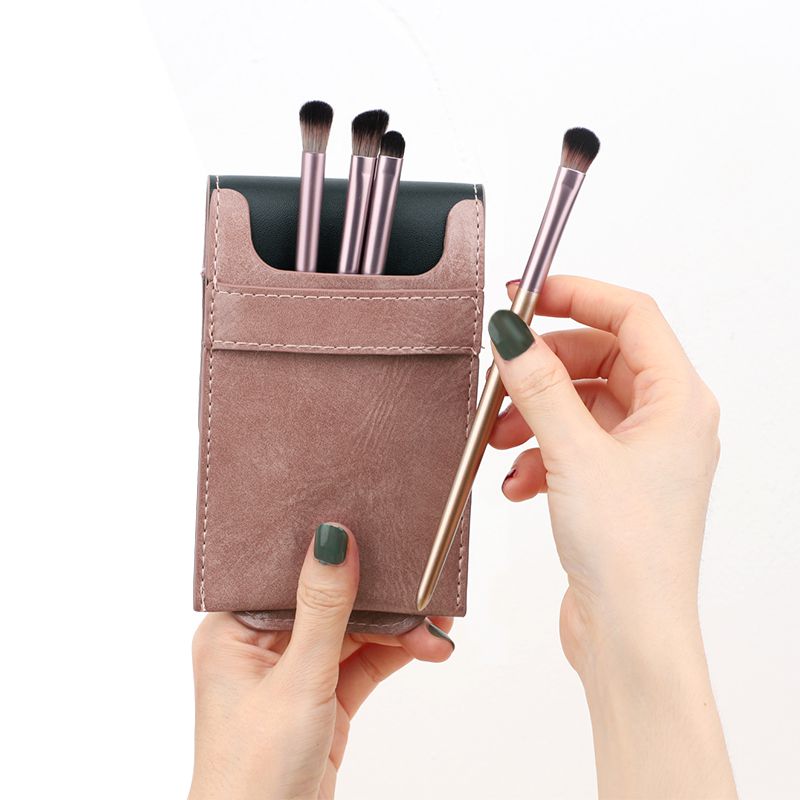Industry news
Indian Beauty E-Commerce Sees 30% Growth in Brush Sales: Natural Bristle vs. Synthetic Bristle Debate Continues
- 405 Views
- 2025-07-01 01:32:14
Indian Beauty E-Commerce Sees 30% Growth in Brush Sales: Natural Bristle vs. Synthetic Bristle Debate Continues
India’s beauty e-commerce sector is witnessing a remarkable surge, with makeup brush sales soaring by 30% year-on-year, according to recent industry reports. This growth signals a shifting landscape where Indian consumers are increasingly investing in professional-grade beauty tools, driven by rising disposable incomes, social media influence, and a growing focus on精细化妆容 (precision makeup application). Behind this boom, however, lies an enduring debate: natural bristle vs. synthetic bristle brushes—each with loyal advocates and evolving market dynamics.

The 30% sales spike can be attributed to several key factors. First, the rapid expansion of e-commerce platforms like Flipkart, Nykaa, and Amazon has made high-quality makeup brushes accessible to tier-2 and tier-3 cities, where demand for beauty tools was previously untapped. Second, social media influencers and beauty bloggers, particularly on Instagram and YouTube, have popularized tutorials emphasizing the role of brushes in achieving salon-like results at home. A 2023 survey by the Indian Beauty & Personal Care Association (IBPCA) found that 68% of consumers aged 18–35 purchased makeup brushes after seeing them recommended by influencers. Additionally, post-pandemic trends, such as the “self-care ritual” boom, have encouraged consumers to splurge on tools that elevate their daily makeup routines.
At the heart of the market’s growth is the ongoing tussle between natural and synthetic bristles. Historically, natural bristles—sourced from animals like goats, squirrels, or ponies—were favored for their ability to hold powder pigments effectively and deliver a soft, blendable finish. Professional makeup artists, especially in India’s film and fashion industries, long swore by natural brushes for their durability and “luxury feel.” However, this preference is being challenged by synthetic alternatives, which are gaining ground for ethical, practical, and performance reasons.
Synthetic bristles, typically made from nylon or polyester fibers, have undergone significant technological advancements. Modern synthetic brushes now mimic the softness of natural hair, with tapered tips that pick up and distribute powder, liquid, and cream products with precision. Unlike natural bristles, they are cruelty-free—a major selling point for India’s Gen Z and millennial consumers, 72% of whom prioritize ethical beauty brands, per a 2024 Nielsen report. Synthetic brushes also dry faster, resist bacterial growth, and are often more affordable, making them ideal for budget-conscious shoppers and those new to makeup tools.
The sustainability angle further tilts the scales toward synthetics. With India’s growing focus on eco-friendly beauty, brands are innovating with recycled plastics and biodegradable handles for synthetic brushes, aligning with consumer demands for lower environmental impact. Natural bristles, by contrast, face scrutiny over animal welfare practices and inconsistent sourcing, which can drive up costs and raise ethical concerns.
Yet, natural bristles are far from obsolete. High-end beauty brands and professional artists continue to prefer them for specific tasks, such as blending loose powders or achieving a “flawless airbrushed effect.” The IBPCA notes that natural brush sales still account for 35% of the premium segment, driven by consumers willing to pay a premium for traditional quality.
Looking ahead, the 30% growth trajectory is expected to continue, with synthetic brushes leading the mid-to-mass market and natural bristles retaining their niche in luxury. For manufacturers, this means balancing innovation—such as developing hybrid bristle technologies—with responsiveness to consumer values like ethics and sustainability. As India’s beauty e-commerce sector matures, the natural vs. synthetic debate will not just shape sales trends but also redefine what “quality” means for the next generation of beauty enthusiasts.











